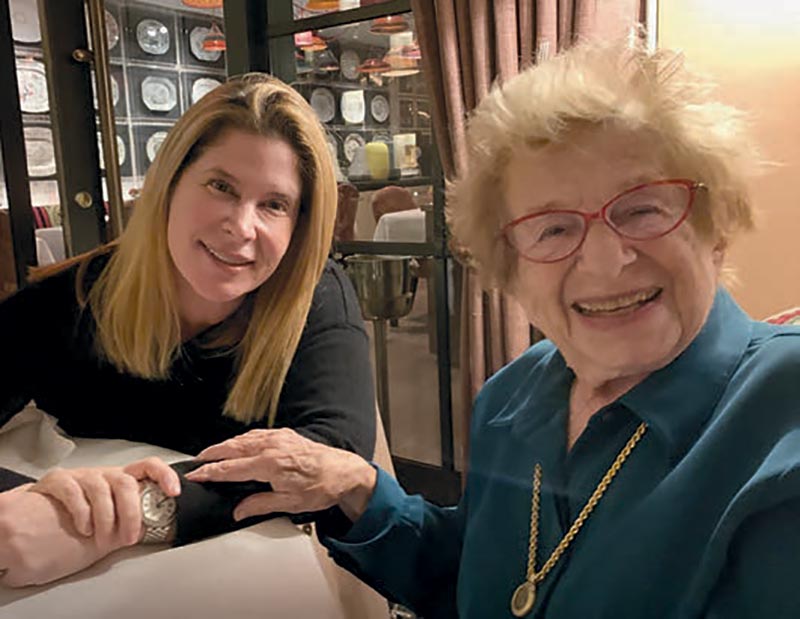
Jodi Harris
Published:
For USC Shoah Foundation Next Generation Council member Jodi Harris, contributing to the Institute is a family affair: Her mother was a docent at the first iteration of the Institute in the mid-1990s, leading tours of the trailers in which the Institute was initially housed on the backlot of Universal Studios.
But despite this family connection and a general appreciation of the Institute’s activities, Harris, a licensed clinical social worker who lives in Brentwood with her husband and two children, didn’t become involved with the Institute herself until recently, when she felt a change in the political climate. After a rise in antisemitic rhetoric and incidents, she felt compelled to take part: “I wanted my children to be able to walk around and say ‘This is my religion, this is who I am.’” She soon joined the Next Generation Council, a key advisory group that promotes the Institute’s goals, provides expertise, and works to preserve the Visual History Archive for future generations.
In this new role, Harris sought to educate herself about the Institute’s activities and purpose, in the process opening her eyes to what the Institute was trying to accomplish through its use of testimony and its promotion of genocide education. When Executive Director Stephen Smith invited Harris on a trip to the California State Capitol in April to take part in activities surrounding Yom HaShoah, a day of remembrance for the 6 million Jews killed during the Holocaust, she eagerly accepted.
At the Capitol, Harris watched as state legislators interacted with a Dimensions in Testimony (DiT) exhibit featuring survivor Pinchas Gutter, asking questions that Gutter answered in pre-recorded segments. “No one could believe the conversations they could have with Pinchas,” Harris said. “They were blown away.”
One of the primary purposes of the trip was to spread knowledge to lawmakers and community members about the Institute’s work. “When people hear about the Institute, they generally think about the Holocaust. But it’s so much more,” Harris said. She believed that allowing lawmakers to see the educational potential of the Institute’s work, such as through the DiT display, provided them with a sense of the potential that testimony has to change hearts and minds: “When you’re face-to-face with a survivor’s testimony, the Holocaust is no longer just an abstraction. It’s a reality.” That the event occurred shortly after the shootings at a Poway synagogue underscored the ongoing purpose of the Institute to fight hatred and the violence that can arise from it.
Later, Harris witnessed the bipartisan passing of a resolution commemorating USC Shoah Foundation’s 25th anniversary. During the preceding discussion on the Senate floor, lawmakers were joined at their desks by Holocaust survivors. Watching legislators introduce each survivor and speak about the importance of the resolution was a highlight for Harris: “It was incredible to see survivors acknowledged and to see their appreciation that people were fighting to ensure that what they faced won’t happen again.”
Harris believed that making people more aware of the Institute’s educational purpose will be beneficial for all society. “Holocaust education is very important because it’s not in a lot of schools,” Harris said. “If you look at genocide as a whole, it follows a pattern that can be recreated at any time. Genocides follow the same trajectory, and that’s what people need to learn about.”